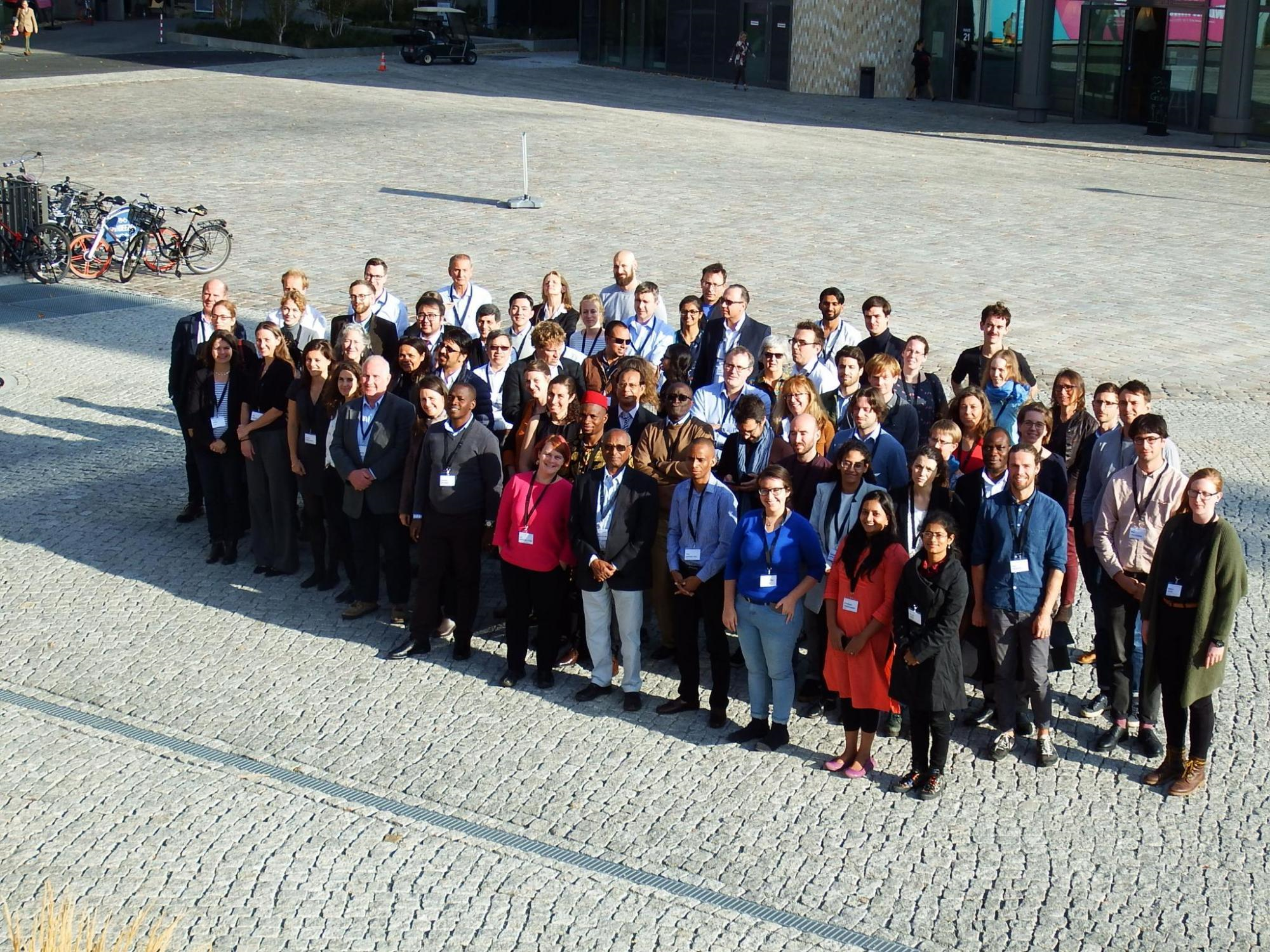An international workshop in Berlin, supported by scientists from the Priestley International Centre for Climate, has met to discuss how to deal with a growing mountain of literature in relation to climate solutions.
More than 100 scientific studies on climate change are published every day on average. However, despite the burgeoning literature, solution options and their effects are often not understood in sufficient depth in scientific and political discourses.
To address this, more than 70 researchers from 20 countries met at the Mercator Research Institute on Global Commons and Climate Change (MCC) in Berlin for a three-day workshop "Learning on Climate Solutions" (15-17 October 2018).
The event was supported by the International Development Research Centre (IDRC) and the University of Leeds. Priestley Centre Chairs Jason Lowe, Jan Minx, James Ford and Lea Berrang Ford were on the scientific committee, along with Felix Creutzig of MCC and Robbert Biesbroek of Wageningen University in the Netherlands.
The discussion is highly relevant to the forthcoming Sixth Assessment Report (AR6) of the Intergovernmental Panel on Climate Change (IPCC), as well as for wider learning on climate solutions. In contrast to the IPCC's Fifth Assessment Report (2014), which focused primarily on delivering evidence for man-made climate change, AR6 will concentrate more on solution options.
A solid basis for policy makers
"In the face of the literature explosion in climate science in recent years, it is becoming increasingly difficult to keep track of the current state of research," said Jan Christoph Minx, group leader at the MCC and main organiser of the workshop.
"We must therefore examine the plethora of scattered individual research results in the literature and investigate them by using the methods of research synthesis. Learning is only possible through a deep understanding of why research findings differ. This will provide policymakers with a solid basis of scientific information," added Minx, who is also Chair in Climate Change and Public Policy at the Priestley Centre.
For their analyses, scientists at the workshop used methods of research synthesis that have long been established in the health sciences as well as modern "big data" tools. These organize and link findings from various research areas and prepare them in such a way that they can easily be picked up in scientific reports, for example by the IPCC.
“We expect over 300,000 peer-reviewed publications related to climate change that are relevant for AR6”, says Lea Berrang Ford, Priestley Chair in Climate and Health at the University of Leeds. “This represents a huge, almost paralysing, task for the climate assessment community. It is critical that we advance our evidence synthesis methods if we are to maintain credibility of the assessment process."
Demand-side climate solutions such as energy savings have so far received little attention in both the scientific and the political debate. "The systematic review of the literature now gives us the tools to better understand how behavior, social norms and urban planning affect climate-friendly lifestyles," said AR6 co-ordinating lead author Felix Creutzig, who heads the MCC working group on land use, infrastructure and transport.
The Berlin workshop was enthusiastically received by the international attendees, who identified research topics particularly relevant to AR6 and formed teams to conduct systematic reviews in their respective areas. The scientists were also trained in how to implement the methods of research synthesis and were familiarized with the different IT-based techniques.
Photo: MCC Berlin

